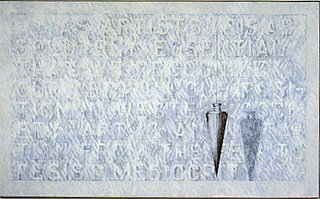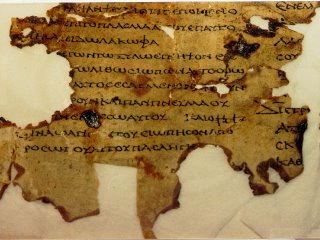"plain style" preaching is like asthma
 The worst critic of my preaching is me. I know I share this with many of my fellow expositors. How many times have we walked away from the pulpit thinking there were a thousand better ways to communicate what was just said. However someone may retort, "Yes Paul, but the Spirit will use your words no matter how mangled they flow." I would be the first to admit this is true but it does not alleviate our responsibility to communicate clearly and plainly. I suspect one source of this problem is the tendency to play the scholar in the pulpit (some show it outside the pulpit as well not the least of which is in the blog world). The problem appears that some have confused what it means to be a preaching scholar. The late James Boice writing in the chapter "The Preacher and Scholarship" in The Preacher and Preaching (ed. Samuel T. Logan, 1986) notes,
The worst critic of my preaching is me. I know I share this with many of my fellow expositors. How many times have we walked away from the pulpit thinking there were a thousand better ways to communicate what was just said. However someone may retort, "Yes Paul, but the Spirit will use your words no matter how mangled they flow." I would be the first to admit this is true but it does not alleviate our responsibility to communicate clearly and plainly. I suspect one source of this problem is the tendency to play the scholar in the pulpit (some show it outside the pulpit as well not the least of which is in the blog world). The problem appears that some have confused what it means to be a preaching scholar. The late James Boice writing in the chapter "The Preacher and Scholarship" in The Preacher and Preaching (ed. Samuel T. Logan, 1986) notes, "Still, it is not the scholarship we are preaching. Still less must we preach ourselves, as if the scholarly element in sermons could be used to gain prestige for the preacher. We are to preach the Word of God, knowing that only the Word contains within it the power necessary to break sin's shackles and turn a rebellious child of Adam back from the life of sin to the Savior. The minister, even in being quite technical, should never forget that his end is not chiefly to inform in such areas, but to comfort his listeners with the need to hear and obey the Word of God. . . .if it [scholarship] takes the place of God's Word, it is worse than useless" (p.104).Dr. Sinclair Ferguson has also issued a reminder that the "plain style" of preaching is what expositors should aim for. He writes,"There are many ways this principle applies. Do not make eloquence the thing for which you are best known as a preacher; make sure you get the point of the passage you are preaching, and that you make it clear and express its power. True evangelical eloquence will take care of itself. " Ferguson also notes that Anglican J. C. Ryle spoke often of this great need, "Have a clear knowledge of what you want to say. Use simple words. Employ a simple sentence structure. Preach as though you had asthma! Be direct. Make sure you illustrate what you are talking about."
You can see Dr. Ferguson's full article here.








